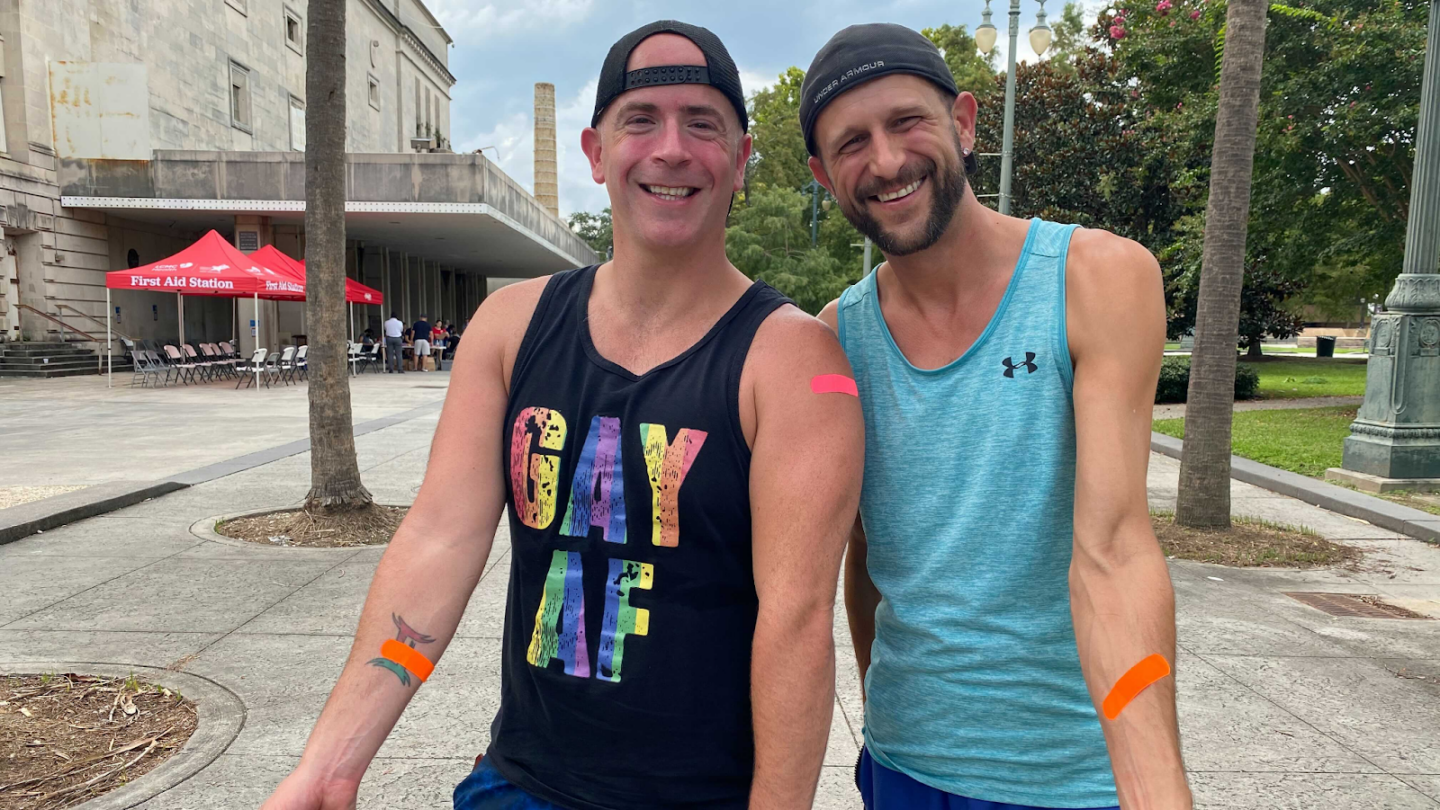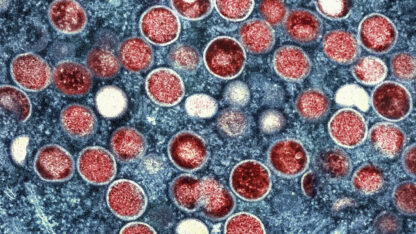As the U.S. Department of Health and Human Services prepares to end its public health emergency for mpox in January, health providers and public officials are reflecting on the public health response to the virus and lessons learned from treating it.
“I think people really took the outbreak to heart and took care of themselves, and that really made a huge difference,” said Dr. Melanie Thompson, an Atlanta physician who treated some of the earliest cases. “I think the community deserves a huge amount of credit for bringing this outbreak under control.”
Dr. Thompson spoke to host Jim Burress on WABE’s “All Things Considered” about what she’s observed from treating patients, and the elements that kept mpox from becoming another COVID-19.
She said she hasn’t been surprised by the decline in new cases of mpox and attributes it to the effort to educate and get vaccinated by those most at risk for getting infected within the LGBTQ community.
The World Health Organization recently decided to rename the virus formerly known as “monkeypox,” due to concerns the original name was discriminatory and stigmatizing.










